Stigma persists around HIV because of outdated perceptions of the virus and what it means to be HIV positive today, writes Sinclair Laing.
December 1 is World AIDS Day. Or World HIV Day, as we prefer.
Stop: that’s not your cue to click away! It’s an important day of recognition, but it’s far from your preconceived story of doom and gloom.
If I may indulge for a moment, I’ll tell you a little about me, a person living a long, healthy, fun, open, professional, loving, and very fulfilling life here in the Granite City – with HIV.
Before being diagnosed a decade ago, I had those ideas of HIV misery that perpetuated. Most of us did, except the few better informed.

When I was diagnosed, I went through all the emotions: swore (loudly), cried (a fair bit), feared, blamed and shamed myself. I thought I’d die young and never be loved. But, my mental software was simply out of date. Literally from another century. I forgot or just never bothered to update it.
It’s not that the truth wasn’t out there, it just wasn’t out there enough, and I wasn’t that open to it. My diagnosis forced a rethink.
A system reboot – with added antivirus
My favourite quote (which I churn out too regularly), came from my amazing, non-judgmental consultant. They said “own it, or it will own you”. The wisest words I ever heard, which are now applied to my entire life.
That’s exactly what I did (but only after some more wallowing). I reached out to a specialist counsellor, connected with others in the same situation (all still friends), I educated and medicated myself. Call it a system reboot, with added antivirus (pun intended).
Then, I realised I wasn’t dying a slow, lonely death. It was a turning point.
Sadly, the same couldn’t be said for everyone. Their software was still so last century. I don’t blame them: it’s not their fault. It’s just that we had huge investment in specific anti-HIV mental programming in the 1980s and 1990s, and no investment of note on the updates!
Good news doesn’t sell, right? Thankfully, the programming is being rewritten, and free updates are now available…
Stigma persists because of a lack of knowledge
I’m now utterly comfortable with my status. I’m not an HIV poster boy, but there’s no shame, blame, or self-stigma. It is what it is.
I’m healthy, happy and it’s preferred to many other chronic or acute illnesses. One pill a day. No side effects. That’s all.
I don’t have to disclose to anyone if I choose not to, because I simply “Can’t Pass It On”! Even if I have unprotected sex.
Once on stable medication, the antivirus programming reduces HIV to Undetectable and therefore Untransmissible levels: U=U. What a leap.
OPVG promotes U=U
For more information, go to https://t.co/n7QpkUOsvB pic.twitter.com/CbRTuiZD3E— Our Positive Voice (@ourposvoice) November 24, 2021
So, why is there still so much HIV stigma? Simple – folks still haven’t updated their programmes.
This obvious injustice and my desire to support others and advocate for positive change has led me and some peers to set up Our Positive Voice, a forum for people living with and affected by HIV. We’re there to help shape policy, reduce stigma and provide support to others.
We’ve had some great successes, from establishing Aberdeen as a “Fast-Track City”, aiming to eradicate new HIV transmissions, to a regular column in this most esteemed of publications, to providing formal peer support in collaboration with the NHS. All very “positive” and fulfilling.
Remember and reflect with gratitude
Now you’ve heard my happy truth, I can’t end with a pretence that everything in the world was or is perfect. There are tougher sides to HIV which should be remembered.
Many who came before made truly unthinkable personal sacrifices to force needed social and medical changes
We didn’t always have a progressive society and great medical advances like today. Many who came before made truly unthinkable personal sacrifices to force needed social and medical changes. It’s on the shoulders of those giants that we all stand proudly today.
Some people in other countries still experience awful stigma and a life-limiting lack of medical and mental care. It’s on December 1 that we remember us all, then and now.
Remember, reflect with gratitude, and continue work on that journey we’ve yet to complete.
#WorldAIDSDay is a time to remember.
Our Tribute Wall is a special space to share memories of your loved ones and celebrate people living with HIV today.
Together we can remember those we’ve lost and look ahead to a brighter future for people living with HIV. Share a message👇
— Terrence Higgins Trust (@THTorguk) November 22, 2022
For me, it’s a wonderful life (I watch that every Christmas!). If you want yours to be, I suggest you get tested. As you can see, there’s little to fear but fear of yourself.
You can ask your GP, your local sexual health clinic, or order free tests online at hiv.scot/test.
And, if you or someone you know has or is affected by HIV, then give us a shout for a confidential, no-expectations chat, via ourpositivevoice.org.
Sinclair Laing works for Aberdeen City Council and is the Treasurer and Co-Founder of Our Positive Voice
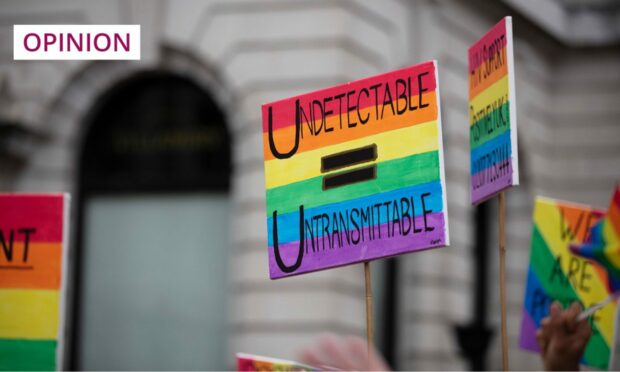
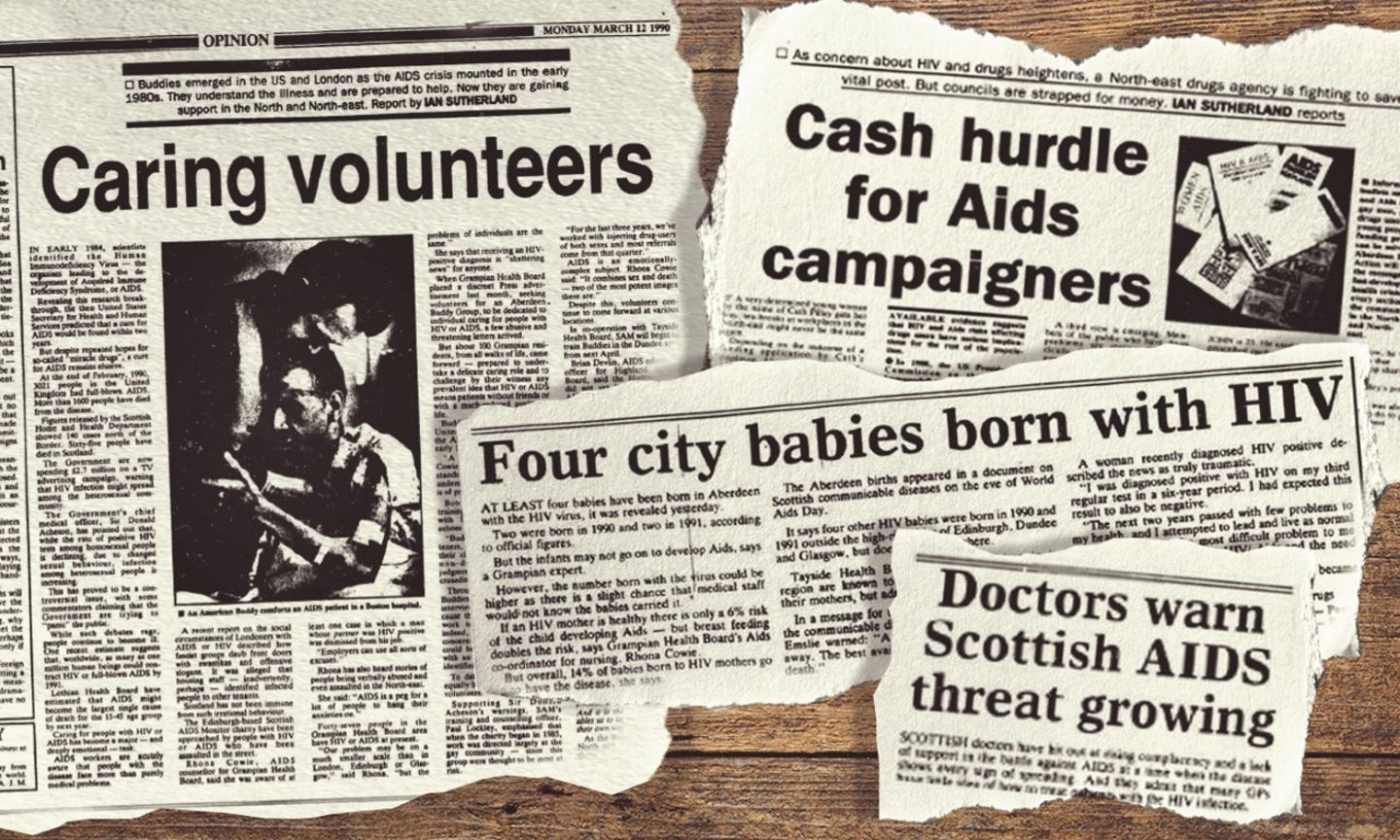
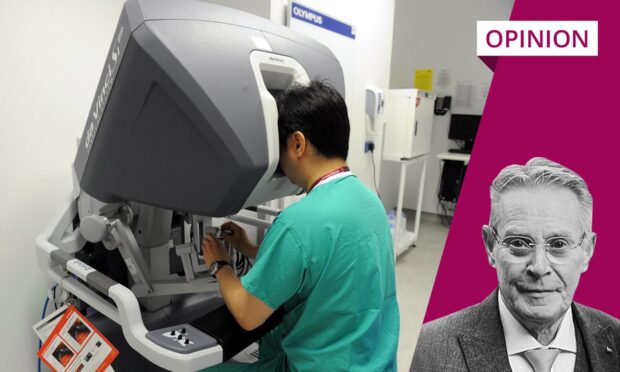
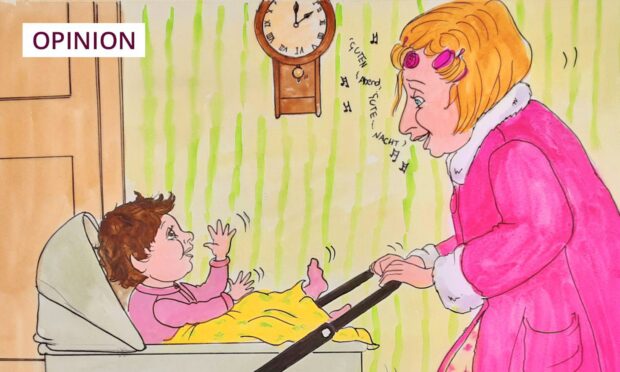




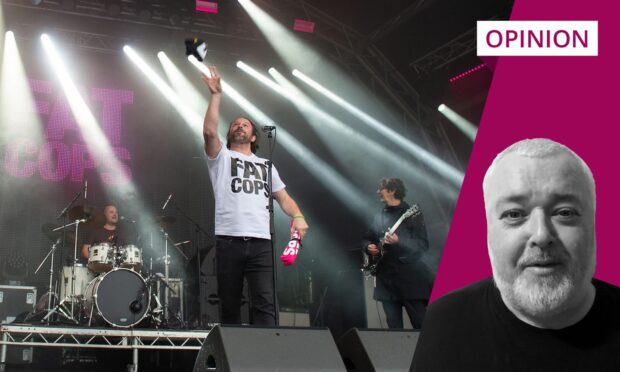



Conversation